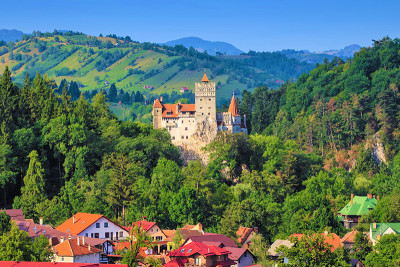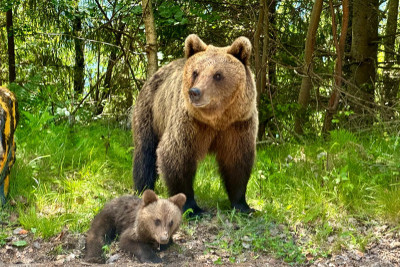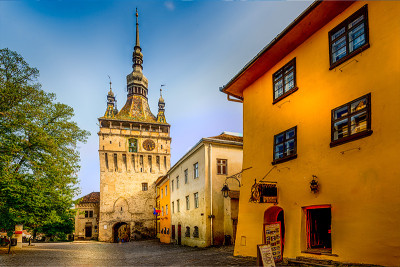Dragobete is a character of Romanian mythology, son of famous Baba Dochia, who was the daughter of the last Dacian King, Decebalus. His mother is associated with the end of a harsh winter and the coming of spring. Dragobete is associated with love. Some even say that because of his huge heart and generous kindness, he was chosen by the Virgin Mary to be the Guardian of Love. Dragobete even has his own holiday: February 24th.
This day is the celebration of romantic love and is very similar to Valentine’s Day. In Romania, some people do celebrate Valentine’s Day, while omitting Dragobete; others celebrate only Dragobete; and perhaps those who are madly in love celebrate both Valentine’s Day and Dragobete. February is quite a month for lovers!
Dragobete’s holiday is sometimes also known as the “day when the birds are betrothed” (giving him further association with love) because at the end of February is around the time that birds start to gather their twigs for nesting and begin to mate.
Some also consider February 24th to be the first day of spring, and many boy and girls will gather the first blooming flowers and sing. In villages where it is still cold, maidens might gather the snow and melt it, using the water for potions that they will use throughout the year. It is believed that those who celebrate Dragobete’s day will be protected from illness throughout the year.
Another way that young people might celebrate the day is to pick flowers and deliver them to their crush. The exact customs to celebrate Dragobete varies from region to region.
The Legend Of Dragobete
Dragobete’s stories are not quite as well-known (or entertaining, frankly) as the stories of his mother, Baba Dochia. This is in part because the two were polar opposites. Dragobete was humble, kind, muscular, and incredibly handsome. Some people say that he was a supernatural being, or that he was half-god or half-angel. He was young and fell in love with a beautiful woman at a young age too.
They quickly fell madly in love and almost immediately got married, and his mother was not a fan – perhaps she was jealous that this young woman was taking her son away from her. Baba Dochia assigned cruel tasks to her daughter-in-law, and the poor woman obediently listened.
Today, Dragobete walks through the world unseen. Dragobete is pure goodness and the bad deeds that everyone commits has caused everyone to go blind to Dragobete. Originally Dragobete only had the power to mate animals, but then his powers were extended to humans as well, despite penchant for evil deeds.
Besides being just the god of love, he is looked towards for fertility, fecundity, and harmony. He is celebrated as a symbol of waking up the cold, hibernating winter and blossoming life into the spring.
Different Ways To Celebrate Dragobete’s Day

There are so many different traditions throughout Romania that will help you celebrate Dragobete! Some of the traditions that we will describe are more superstitious than anything else, but we are going to share a variety of traditions from throughout the country!
You have to spend this day with your significant other or on a date or with someone because otherwise you will have bad luck for a full year, until Dragobete comes around again. It is also thought that single people who do not talk to their crush on this day will not have any luck with that person in the year to come.
If you are single and do not have a crush, or you cannot talk to your crush on this day, do not despair, there is still a solution if you do not want to be single for the following year. You just have to hug at least one person you are attracted to.
In some parts of the country, people believe that stepping on the foot of your significant other will mean that you will have the dominant role in the relationship. Fun fact: Romania’s neighbor, Bulgaria, also has this tradition, but it has nothing to do with Dragobete. In Bulgaria, stepping over your partners foot normally happens at your wedding.
Because this is a day of love, not just for humans but for animals too, no animals are to be sacrificed on this day. The belief is that sacrificing animals on this day disrupts the animals’ mating patterns and may cause bad things to happen in your household if you sacrifice one.
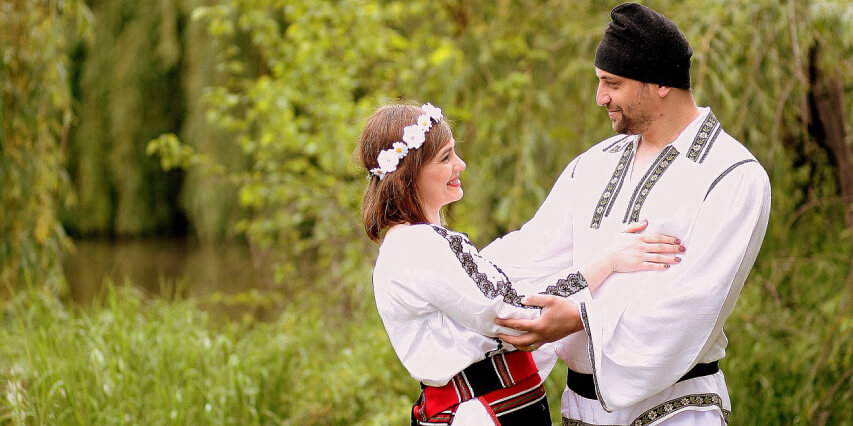
Obviously, because Dragobete’s Day is all about celebrating love, you are supposed to be extra nice to your significant other. However, this is especially true for men: they are to treat their wife or girlfriend with extra respect. Upsetting your woman on Dragobete’s Day or arguing with her is thought to be bad luck.
Everyone is to abstain from sewing and field work on this day. Instead, one should occupy themselves with house work. This is thought to bring abundance for the coming year. This tradition can be thought to align more with the coming of spring.
At night, men and women may gather around a camp fire in the forest. They can pick plants that are currently blooming, and can use these plants for love potions or other spells throughout the year.
When these young men and women enter back into their village or town, the man might chase the woman. If the young woman fancies the man, she might let him catch her. If he catches her, this signifies that she likes him and that they will be engaged and married within the year. There is a lot of pressure for this one day!
Young boys and girls are not supposed to cry, whine or complain on this day. If they do, then the following year will be full or sorrow for them.
Finally, if it rains on Dragobete’s Day, spring will come early!
There are even monre traditions and beliefs that go along with Dragobete’s Day than what we outlined here in this article. If you visit Romania during the month of February, you can experience the holiday for yourself and see all the traditions that the country has to offer!
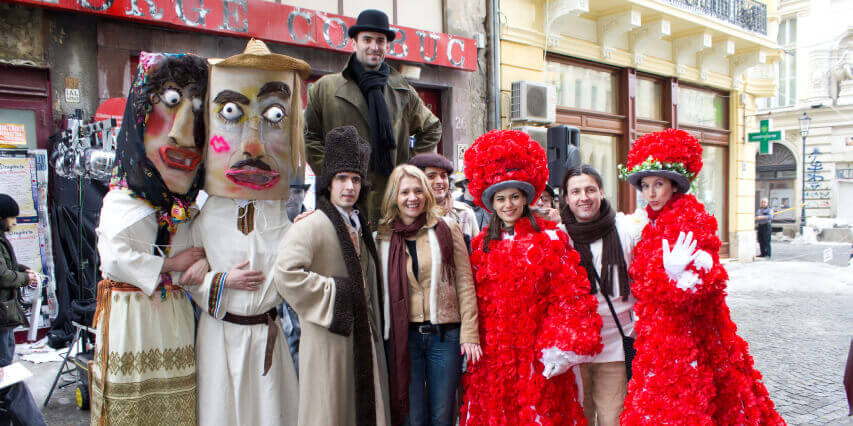
 ES
ES
 IT
IT
 DE
DE
 FR
FR
